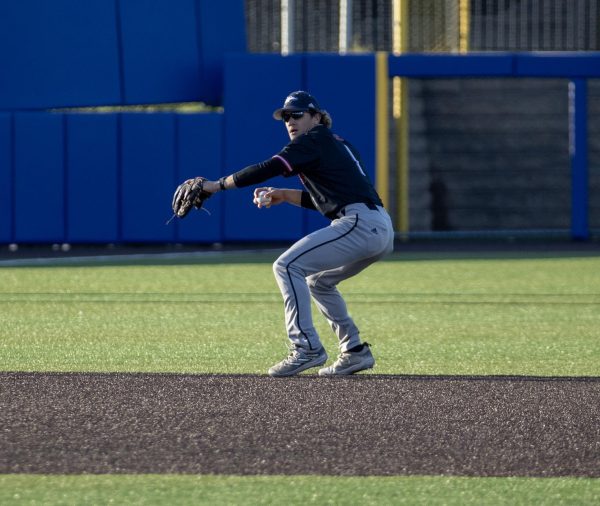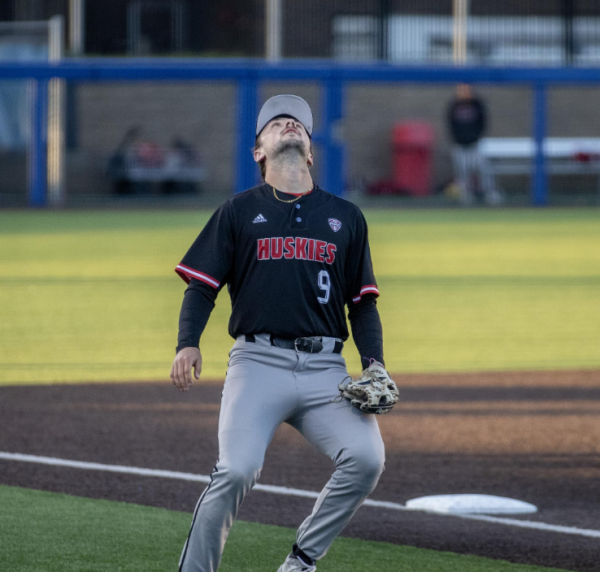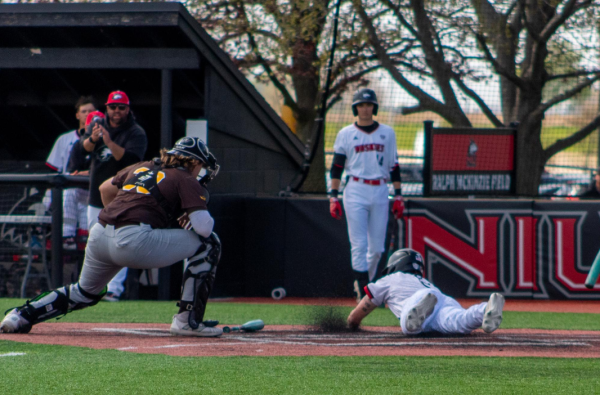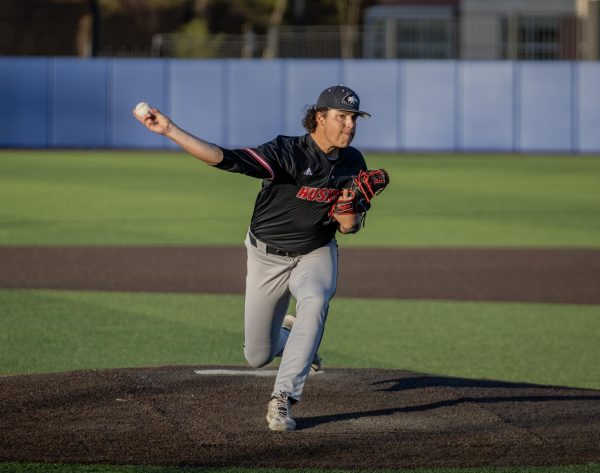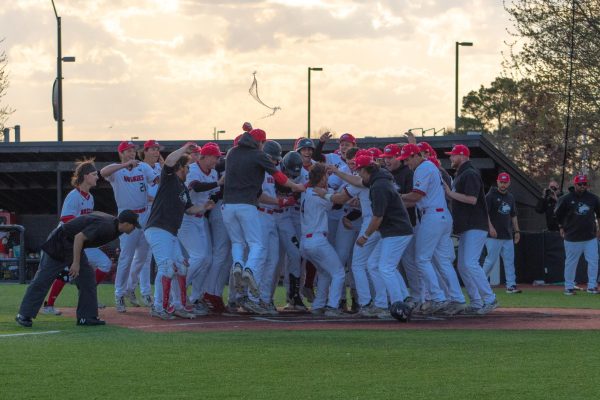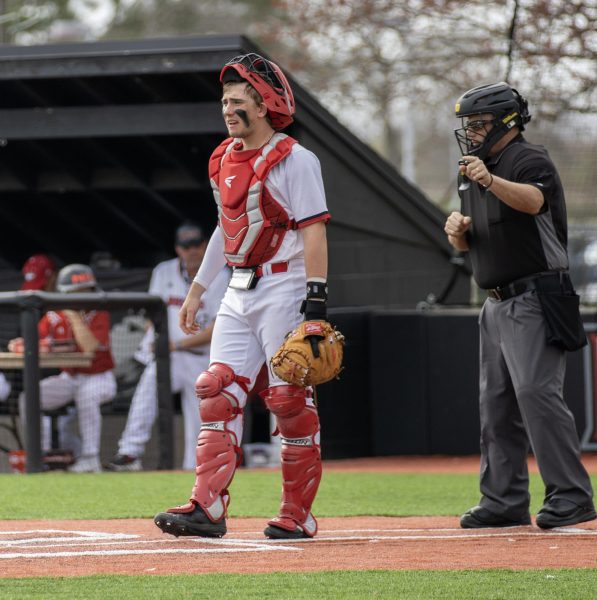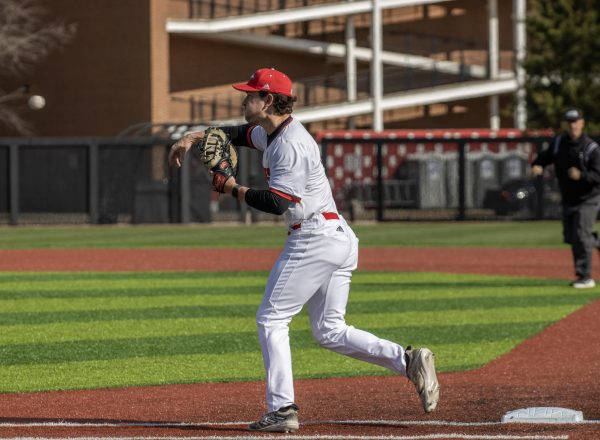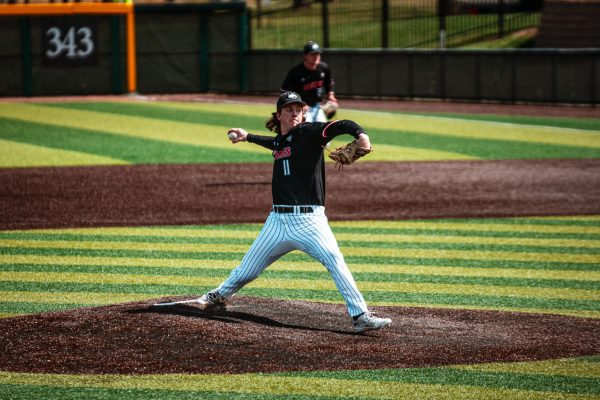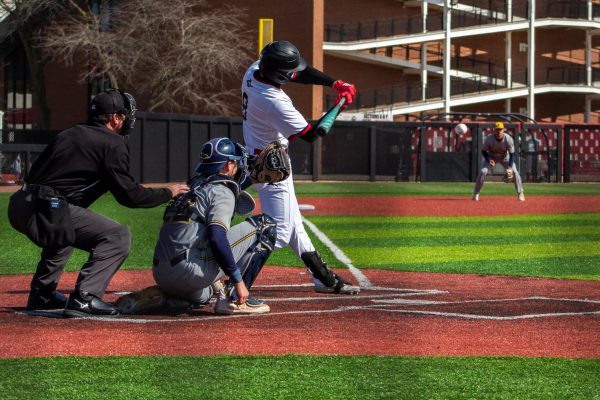Regulating the ‘roids
April 15, 2005
NIU athletic department officials said they know of no NIU athletes using steroids, but are keeping an eye out for violations of their drug testing policy.
NIU football coach Joe Novak said steroids are something the team would consider more seriously than street drugs.
“We have had suspicion, but as a coach, you don’t always know,” Novak said. “Steroids are something, knock on wood, I have not had to deal with, and I hope I am not faced with it.”
It is a lot easier now to figure out if someone might be using steroids, he said.
“My generation was really ignorant,” Novak said. “I know I had no clue. You just thought he was filling out.”
In addition to rapid growth in a matter of months, there are additional warning signs that an athlete is using steroids, he said.
“There is a real downside to using them,” Novak said. “Fits of rage, change in personality, they get pimples on their back … someone who gets big real fast – it’s not something you do in a matter of two months.”
Head athletic trainer Phil Voorhis said steroids and drug use are not his biggest concern.
“The biggest concern for me is our student-athletes taking something they are not knowledgeable about,” Voorhis said. “The Food and Drug Administration does not regulate any of those things you can buy at GNC or Wal-Mart, like weight-gainers. It could contain substances that cause a positive drug test and our hands would be tied.”
The NCAA requires year-round random drug tests of its Division I schools. A random sampling of student-athletes from any number of sports could be tested, Voorhis said.
“It is always a concern,” Voorhis said. “If [student-athletes] are making out-of-the-ordinary strength gains, then the strength staff would keep a closer eye on this.”
More often, NIU independently conducts random drug tests of athletes.
“They are two different policies,” Voorhis said. “If I caught a kid using steroids with our testing, it [would not be] an NCAA infraction.”
The NCAA policy calls for a one-year suspension, which cannot be used during a redshirt year. A redshirt year is when an athlete is granted another year of eligibility if he or she elects not to participate in a certain number of games or events in any given year.
If a student-athlete tests positive from an NIU drug test, they go through counseling sessions, parent conferences and a probationary period of 12 months where the student can be called at any time to submit to a second drug test. A second violation would result in a four-game or four-event suspension, and the third violation results in the athlete’s removal from the team.
Voorhis said scholarships are evaluated on a yearly basis and there is no specific protocol about how a failed drug test would affect an athlete’s scholarship.
Contrary to popular belief, there is no “freshman forgiveness” when it comes to the drug-testing policy, Voorhis said.
This summer, Voorhis said he will propose the suspension time be changed to a percentage because football players lose a larger portion of their season than baseball players do.
The NCAA also tests before bowl games and the postseason, Voorhis said.
Matt Mangum, NIU strength and conditioning coach, said he has not seen steriod use at NIU or at MAC rival Western Michigan, where he formerly worked.
“The main work ethic of the athletes at NIU is very blue collar,” Mangum said. “We recruit athletes that are not afraid to do what it takes to be a winner just through hard work.”
Mangum said using steroids will not necessarily make anyone a better athlete.
“Just because you are bigger and stronger won’t make you a better athlete,” Mangum said. “You have to have talent for the game. You’re not going to give a terrible athlete steroids and they become Michael Turner.”



